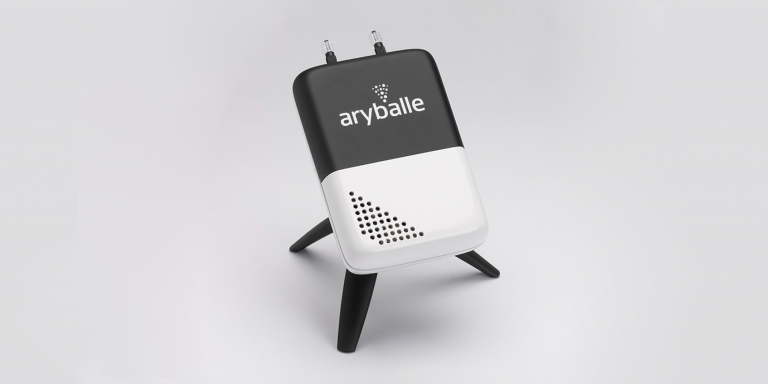
Aryballe, a French start-up, combines biochemistry, advanced optics and machine learning to reproduce the human sense of smell. NeOse Advance,the company’s latest development, is based on silicon photonics and detects, records and identifies olfactory data to develop universal electronic noses for professional and consumer applications.
A new generation of biosensors is emerging to analyze odors. It comes close to the functioning of the human sense of smell and opens up new fields of application in industry and everyday life.
But engineers are struggling to copy this process. Tristan Rousselle, CEO and co-founder of Aryballe Technologies to meet this challenge with a disruptive technology using biosensors rather than the chips that make up today’s electronic noses found in industry explains:
“Smell is malleable. Its perception is very subjective and evolves according to our experiences and our culture.”
To“launch a disruptive innovation project at the interface of several technologies,” he joined forces with the Commissariat à l’énergie atomique et aux énergies alternatives (CEA) in Grenoble and developed the first universal and portable odor sensor. Inac (now part of the CEA’s Grenoble Interdisciplinary Research Institute) is providing the biosensor, and CEA-Leti is contributing its photonics expertise.
One of the first applications of this invention, which is protected by a series of patents, is for the general public. It is aimed at people suffering from loss of smell (anosmia), a disease that affects up to 10 percent of the population, especially the elderly. The company is now targeting the professional sector, Tristan Rousselle explains:
“There was a strong expectation, especially from the flavor and fragrance industry, looking for odor recognition tools that deliver objective information, that are light, fast and less expensive than gas chromatography coupled with mass spectrometry.”
He continues:
“Great promises are also expected in the health sector, for the detection of pathologies, following the example of these dogs trained to olfactory recognition of breast or prostate cancer.”
Other markets express interest, such as the household appliance market. Tristan Rousselle adds:
“Industrialists are imagining, for example, ovens that stop automatically when the dish is cooked.”
A technology combining nanosensors, photodetectors and machine learning
- Association of 64 biochemical nanosensors (peptides capturing volatile odorant molecules) grafted on an optical microarray (photonic on silicon).
- Interference between a light source and the sensor/odour molecule complexes is measured by a photodetector.
- Each odor generates its own visual imprint, identified by comparison with an olfactory database built by machine learning.
Many applications
- Perfumery: quality control of raw materials, detection of counterfeits…
- Food industry: quality control, conservation monitoring…
- Automotive (rental, car-sharing): control of the smell of vehicles before use
- Household appliances: monitoring of cooking and food preservation
- Health: detection of certain pathologies.
The company is targeting other markets: wastewater treatment plants and petrochemical plants to detect odor nuisances, public buildings to analyze the cleanliness of sanitary facilities, civil security to search for buried people… More than 50 applications have been identified.
Eventually, the artificial nose will be used in the home, particularly in the kitchen: to stop the oven or the thermo-cooker cooking at the right moment, to turn on the hood before grease odors invade the room…
Aryballe Technologies has signed partnerships with a pharmaceutical laboratory and a household appliance manufacturer.
A market of more than 100 million sensors per year is emerging for Aryballe and its most serious competitors, the Japanese MJI Robotics and the American Aromyx Corp. They could even open up new and even more futuristic fields of investigation: studying, for example, the influence of odorless pheromones on the human subconscious, or coupling detection and diffusion. Tristan Rousselle anticipates:
“One day we will be able to record a smell in a market and bring it home to enrich our memory album.”
Translated from Machine learning, biochimie et optique avancée pour le nez artificiel d’Aryballe









